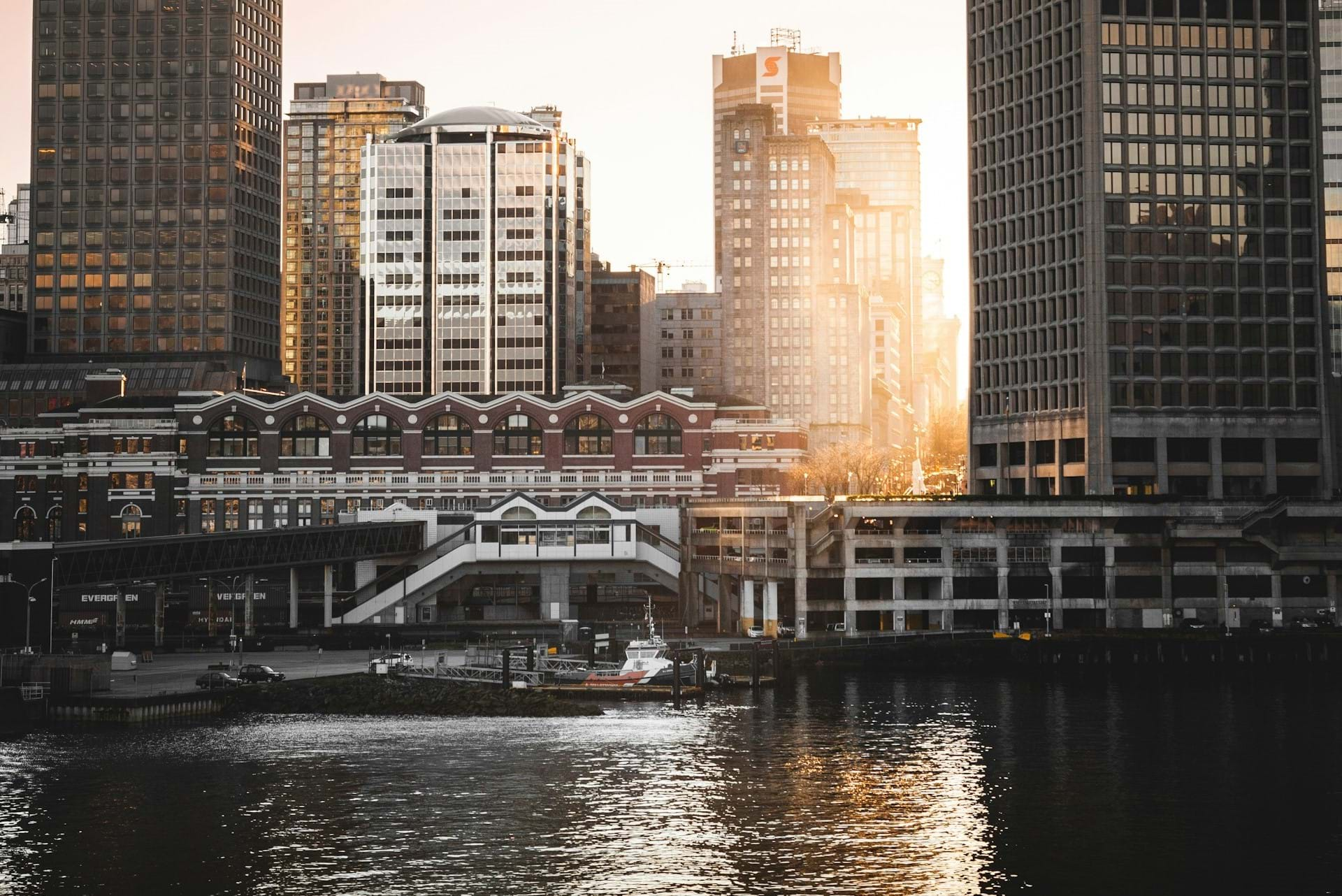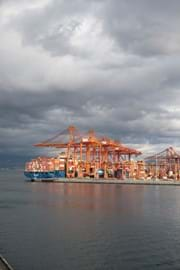
COSBC marks its 100th year!
Q & AThe Chamber of Shipping of British Columbia (COSBC) is celebrating its centennial, which makes it an ideal time to touch base with the organization that has been a Green Marine association member since 2011. COSBC is the unified voice for cargo and passenger vessels calling on Canada’s West Coast ports.
Bonnie Gee was appointed as COSBC’s president in March 2023. She has worked for the Chamber for 31 years – almost a third of COSBC’s history – joining the organization straight out of university. Contributing writer Julie Gedeon speaks to her about COSBC’s evolution, current priorities, and future direction.
I imagine the type of trade you see has changed over the time that you’ve been at COSBC?
The volumes and diversity of goods have increased substantially, along with the size of vessels. Container throughput in the Port of Vancouver is 10 times what they were when I started at COSBC.
How does COSBC help with all this?
We work with our members to understand challenges when it comes to proposed policies that require changes in their operations. We usually encourage Canada to follow the decisions made internationally so there’s consistency across borders. To achieve this, we often work with all levels of government.
What is the overall goal?
Our vision is a globally competitive industry that enhances Canada’s prosperity in an environmentally sustainable and socially responsible manner.
I’ve been pleased to see how proactive our members are when it comes to dealing with environmental and social concerns.
Our members, for example, voluntarily carried out mid-ocean ballast water exchanges 25 years ago before it became mandatory. More recently, we continue to see a high level of voluntary participation in the Vancouver Fraser Port Authority’s ECHO Program to reduce underwater noise from vessels.
What are the challenges with the increased trade?
Not having adequate infrastructure creates challenges in handling the greater cargo volumes, but we also feel there is opportunity to improve port efficiencies with better data sharing and key investments.
The other challenge is the growing coastal population.

Many people still don’t make the linkage between the vessels and ports contributing to their livelihood, prosperity and well-being.
Could you relate some of the current issues with local communities?
Vessels arriving to load Canadian exports often end up using the anchorages off Vancouver Island. Most cargoes are dependent on two national railways, and often vessels are contracted to arrive before the cargo is available. Our members are often trying to manage noise and light complaints from the residents within the Island communities.
We’ve worked with the Port of Vancouver and Transport Canada to come up with an interim protocol to support a more equitable allocation of anchorage usage, but it doesn’t always happen as we are limited to the number and size of anchorages available.
Given that railways are often at maximum capacity, are you exploring shortsea shipping options?
There are limitations that prevent making this a more viable option. In addition to costs, there is the need for the federal resources to enable other locations, such as Nanaimo, to discharge containers as a first point of entry.
What are some other COSBC priorities?
Decarbonization is a priority for everyone in the transportation sector. With many alternate fuels being considered, there is no clear choice being taken by ocean carriers, making it difficult to focus on the infrastructure and services we need to put in place to support vessels.
In the interim, we’d like to see greater port optimization and collaboration with the supply chain partners to see how we can make the existing services more efficient.
A big part of this is having vessels arrive at the optimal time. This requires better data sharing than currently exists.
How does Green Marine fit into this?
Green Marine has some great tools to support its members in delivering greater environmental results than what’s regulated. We try to use a similar philosophy with our members, encouraging them to do more and to get recognized for doing so, such as participating in the ECHO Action program or sustainability awards given by ports.
What has been the response to factors outside the industry’s control on the West Coast?
We’ve been through a lot, with the pandemic, rail blockades, protests, labour disputes, and significant floods and fires all disrupting the supply chain. We’re doing better at managing disruptions. Transport Canada’s new Supply Chain Office is expected to bring all the concerned parties together to take the lessons learned to better understand the challenges, identify areas for improvement, and determine if some cargoes can be prioritized, such as perishable goods.

We also need infrastructure that can withstand the types of extreme weather that we’re experiencing now.
Are your members asking for particular changes to facilitate more efficient, sustainable trade?
Our members want greater reliability and agility. Operators are often questioning whether Canadian West Coast ports voyages remain profitable, as disruptions and/or delays affect their schedule, fleet optimization, and carbon footprint.
What are some monumental changes you’ve noted since being at COSBC?
The passing of legislation at the federal and provincial levels with respect to the United Nations Declaration on the Rights of Indigenous Peoples and its impacts on coastal and marine governance. The definition of co-governance in this context will need to be clarified on a government-to-government basis.
We’re also seeing a shift in the workforce post-pandemic, with demands for a better work-life balance. There is increasing concern with the shortage of mariners and the 24/7 operations needed throughout the supply chain to support volume growth may no longer be achievable.
Automation and artificial intelligence could fill in the gaps, but first we need to obtain the necessary data to determine how best to use these tools.
Of course, we also have to get a handle on addressing climate change!
How do you see doing some of that?
We’re already involved in discussions on how to improve port efficiencies to reduce energy use to minimize greenhouse gases. It may not be possible to reduce GHG with alternate fuels today, but in the immediate term, it’s a matter of understanding how else we can improve operations to reduce the impacts on the environment and communities.
What do you see for the Chamber’s next 100 years?
I expect that there will be significant advancement in the global fleet as we are already seeing a high degree of innovation in ship design and technology with a focus on net zero by 2050. COSBC will be integral to supporting changes to the ship-to-shore interface as well as the adaption of legislative and regulatory requirements needed to support these advancements.
What else would you like to see?
We find that as a significant trading nation, we don’t really have a strong maritime authority. There is an opportunity for government agencies to be better aligned when it comes to managing marine transportation.
